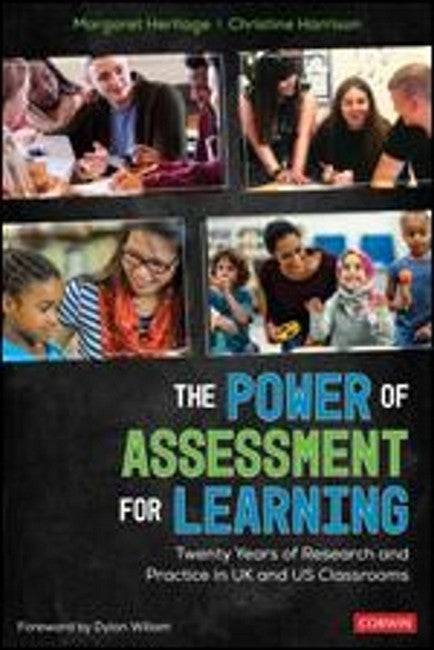Margaret Heritage is an independent consultant in education. For her entire career, her work has spanned both research and practice. In addition to spending many years in her native England as a practitioner, a university teacher, and an inspector of schools, she had an extensive period at the University of California at Los Angeles (UCLA), first as principal of the laboratory school of the Graduate School of Education and Information Students and then as an Assistant Director at UCLA's National Center for Research on Evaluation, Standards and Student Testing. She has also taught courses in the Departments of Education at UCLA and Stanford University. She is a regular presenter at conferences across the United States and internationally. Her most recent book with Corwin, co-authored with Christine Harrison, is The Power of Assessment for Learning: Twenty Years of Research and Practice in UK and US Classrooms. Christine Harrison is a Professor in Science Education at King's College London, where she works as a researcher and teacher educator. Chris's career began in schools and developed through curriculum development projects and examining in the U.K. before she began working on her own research. Working at a prestigious university, and also spending considerable time in classrooms on research and supporting pre-service teachers, Chris began to realize that there was a gap between research ideas and practice. To that end, she has worked with many teachers, researchers and organizations helping all learn from practice-based evidence so they can understand how practice across a variety of contexts centers around the principles of the research. Her work is published in peer-reviewed journals, edited books, and practitioner journals, and she has produced several on-line courses for teachers and researchers. Chris is Associate Director (London) for the Centre for Innovation in Teacher Education and Development, w a joint institutional strategic initiative between Teachers College, Columbia University and King's College London, committed to the principles of equity and social justice. She is also a leading STEM educationalist in Europe working at research, practice and policy level.
Request Academic Copy
Please copy the ISBN for submitting review copy form
Description
Foreword by Dylan Wiliam Preface Acknowledgments About the Authors Chapter 1 Inside the Black Box Revisited A New Way of Thinking About Assessment A Systematic Review What Is the Black Box? Getting Into the Details Is There Evidence That Improving Formative Assessment (AfL) Improves Standards? Is There Evidence That There Is Room for Improvement? Is There Evidence About How to Improve Formative Assessment (AfL)? Changing Practice Guiding Principles Improvement as a Journey Chapter 2 A Tale of Two Countries The Tale of the United Kingdom Major Policy Moves in the UK A Tale From the US Two Countries, Two Journeys? Chapter 3 Student Role in Assessment for Learning Expanding Conceptions of AfL Sociocultural Perspective and AfL Self-Regulated Learning Growth Mindsets Chapter 4 Planning for Learning Distinct Teaching Approaches Influences on Changing Practice Concluding Thoughts Chapter 5 Transforming Classrooms Transforming Practice Developing AfL Practices Classroom Routines Chapter 6 What Still Needs to Be Explored From Evidence-Based Practice to Practice-Based Evidence Teachers Need to Be Vigilant for Evidence Interactions Work in a Nuanced and Detailed Way Context Matters Learning Identity Identity-Safe Environments Funds of Knowledge Disciplinary Knowledge Index

